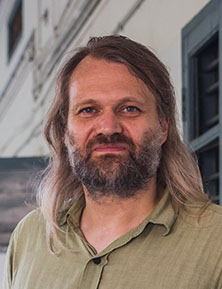The Indian Institute of Technology (IIT) Madras itself became established as an Indo-German collaboration between 1956 and 1974, with the assistance of the Federal Republic of Germany in the context of an evolving development discourse.
By the 1970s, IIT Madras had developed into “one of the premier institutions of its kind and the largest and most advanced technical education project undertaken by the Federal Republic of Germany outside Germany”. German experts set up engineering curricula, laboratories and established a corresponding research agenda, while a first generation of Indian faculty received their training in Germany. German ideas and practices of engineering education and research were manifested and materialized through scientific equipment.
IIT Madras was one of many projects of technical and scientific collaboration in which the Federal Republic of Germany engaged with India in the post-war period. Most of them concerned or included elements of scientific and technical education, from academic studies to vocational training.

Roland Wittje's interest in these collaborations are complex forms of transnational interactions between different kinds of knowledge regimes, where he wanted to challenge apparent binaries and dichotomies, such as ‘west’ – ‘non-west’, ‘craft’ – ‘engineering’, ‘traditional’ – ‘modern’, ‘hand’ – ‘mind’, ‘vocational training’ – ‘college education’, and ‘arts and design’ – ‘science and technology’. With PhD students and colleagues from the French Institute of Pondicherry, he has worked on the history, pedagogy and practice of arts and craft as technology in South India in the colonial and postcolonial period.
One story that Wittje would like to follow up on with his colleagues from Pondicherry is the Indo-Norwegian Project, which introduced the mechanization of fishing crafts and other technological changes to fishing on the east and the west coasts of India in the 1950s and 60s in the name of development. This relates directly to the Museum of Cultural History through Arne Martin Klausen, he was one of the strongest critics of the ‘Kerala Project’. Klausen was a curator at the Ethnographic Museum, which later became part of the Museum of Cultural History, and Professor of Social Anthropology at the University of Oslo.
Roland Wittje is an Associate Professor at the Museum of University and Science History, which is part of the Museum of Cultural History, University of Oslo. Previously he was Associate Professor for the History of Science and Technology at the Indian Institute of Technology (IIT) Madras in Chennai, India and Lecturer in History of Science at the University of Regensburg in Germany.
